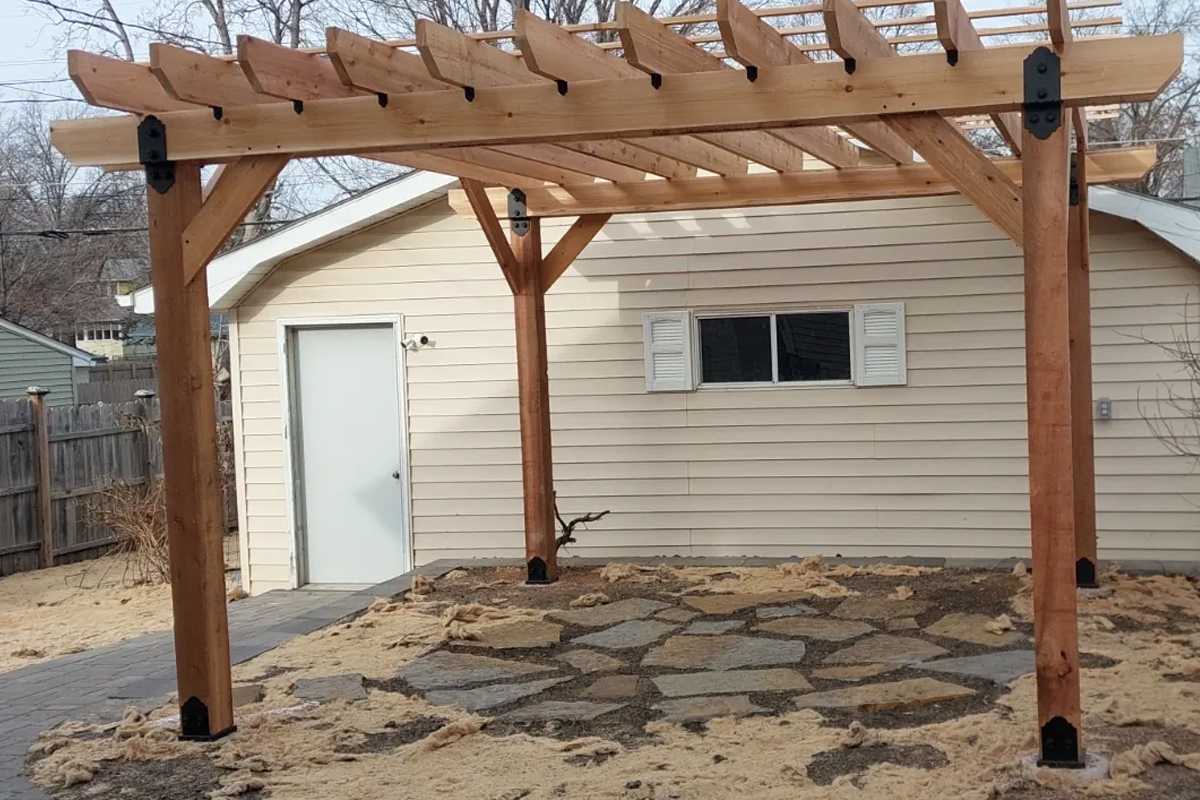
St. Paul Landscape Transformation
St. Paul Landscape Transformation Bee lawns, stairs, walkways, patio, rain gardens, pergola, flagstone, and retaining walls, this landscape transformation has
BEE LAWN SPECIAL | Contact us TODAY about BEE FRIENDLY LAWNS
Utilize cover crops on farms and living mulches to keep the ground green. Mulches can be used as short-term measures to cover the soil between garden plantings or annual seedings to help avoid soil compaction caused primarily by rain hitting bare ground.
Compacted soil eliminates airflow and causes anaerobic biology to take over, reducing nutrient cycling. When we leave the ground bare, we starve the soil of oxygen and invite disease and illness into our plants.
Use ground covers between perennials, under shrubs, and around trees. Low-growing shrubs with ground covers underneath can cover slopes or flat areas, providing multiple canopy layers while still allowing for clear lines of sight.
Use cover crops like white clover, peas, oats, vetch, red clover, and rye. White and red clover can cover walking rows and in between veggie plants. Cover crops help grow plants with available nutrients in the soil due to their roots’ ongoing interactions with microbial life.
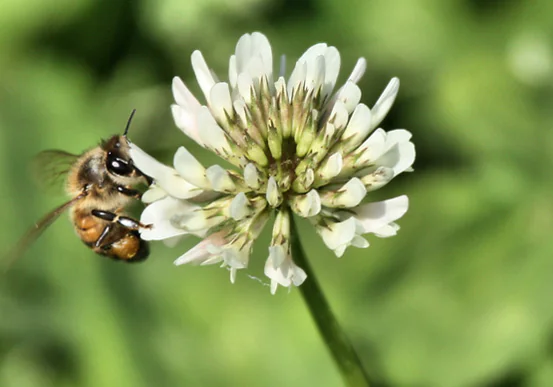

Human interference in the environment is the root cause of every global crisis. From climate change to ocean acidification, from mass extinction to ecosystem annihilation, human action is rapidly eroding the Earth’s physical and biological support systems.
Pesticides (e.g., herbicides, insecticides, fungicides, nematicides, rodenticides—even organic pesticides) kill healthy soil microbes by directly poisoning them and creating anaerobic soil conditions. Since we’re trying to create aerobic conditions and grow aerobic microbes, we do not recommend any form of pesticide.
Instead, pull weeds by hand. Treat infected plants or soils with compost, worm castings, wood mulch, and liquid compost extract. Remove wasp nests with high-pressure water from a hose with a nozzle.
Tilling destroys fungal networks, rips apart earthworms and nematodes, and creates compact anaerobic conditions in the soil, encouraging weed growth.
Turn areas by hand with shovels only once upon installation of new gardens and beds and only after topdressing with 3-6″ of compost. Turning will leave large clumps of soil intact, thus leaving webs of fungi, living nematodes, and other life forms to both inoculate and be inoculated by the freshly added compost. The newly turned-in fluffy compost will now sit under and around clumps of harder soil. After turning, cover immediately with mulch or more compost and then immediately plant or seed. Continue to put compost and plants or seeds into any bare areas until the ground is covered year-round.
Allow more weeds to grow in unused spaces and in the lawn. Bellflower, dandelion, creeping charlie, clover, black medic, purslane, and all weeds have soil-building capacity. Weeds also help keep the ground covered in green, keep roots in the soil, clean and cool water, and feed pollinators. Plus, many are edible!
Manage weed height by mowing or pulling them before they outgrow your garden plants. Over time, weedy ecosystems transition into shrubby ecosystems and then into ecosystems with trees. You can help this succession by selectively letting your favorite weeds grow in places where they work for you aesthetically.
Nearly all soils worldwide are contaminated with microplastics, which have been shown to attract toxins in the soil at a 3-4 times greater rate than regular soil. This potentially poisons soil microbiology and creates anaerobic conditions.
Plant roots foster the growth of beneficial soil microbes, infiltrate and filter groundwater, prevent erosion, slow down storm surges, and add organic matter to soils, all while supporting the plants we love.
We want shallow roots mixed in with deeper roots. This looks like hardwood trees with shorter trees and large shrubs beneath them. Under and around the short trees and large shrubs can be shorter shrubs, perennials, and ground covers. Multiple canopy layers are not only good for soil health, but they also support birds and native pollinators while slowing and cooling rainwater.
Growing a diversity of plants will help us grow multiple layers of canopy while producing various roots with different types of soil-holding and soil-growing abilities. Plant diversity helps your landscape clean and filter water while remaining hardy in varying seasonal and weather conditions. Some plants do better in wetter soil, some in dry soil, and some in colder winters.
Seeding no-mow fescue and Dutch white clover seeds can foster plant diversity and canopy layers. Let native, naturalized weeds (e.g., violets, Virginia waterleaf, black medic, wood sorrel, dandelions, and Creeping Charlie) grow. This can allow for multiple canopy layers that contribute to a greener lawn without watering in droughts and helps nurture soil to protect against erosion and runoff.
Mowing stunts root growth and limits plant diversity, so mow as little as possible, only once per month or once per season after the middle of August. This keeps weed trees from getting too big while allowing for deeper root growth!
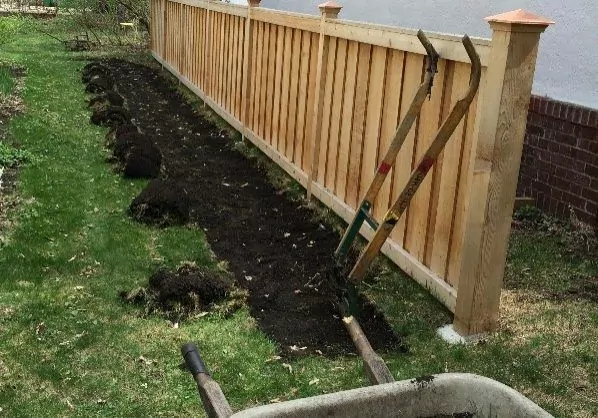
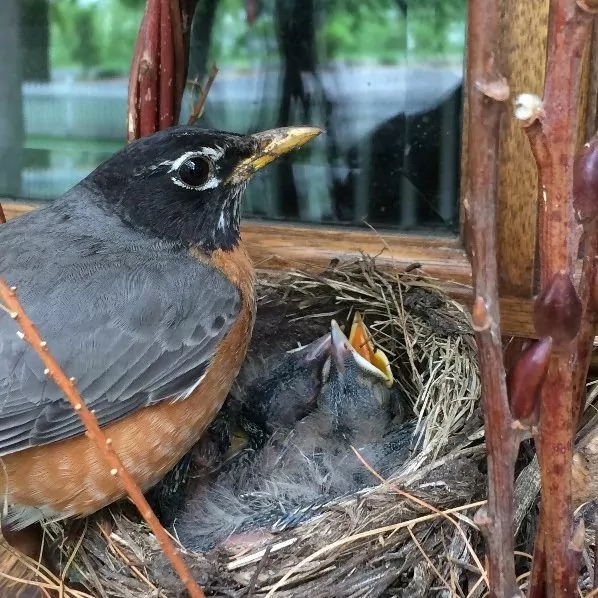
Integrating the right type and amount of animals and soil microbes into your landscape can help grow healthy soil. Many homeowners keep chickens, ducks, rabbits, and even goats, which helps create compostable manure and bedding. Field mice, voles, moles, rabbits, gophers, and squirrels help aerate the soil by digging tunnels. If animals are in spaces where you don’t want them, consider using live traps. Rabbits, squirrels, and deer may eat our garden plants, but they also help spread the seeds of important wild plants like wild strawberries, oaks, and cherries.
Birds are also excellent gardeners., helping plant serviceberry, chokecherry, sunflower, mulberry, and wild grapes. If the birds plant trees on your property, consider integrating them into your landscape to invite more birds!
Microbes process and release nutrients right on plant roots, feeding and protecting plants from disease. The type of microbes you want to grow depends on which plants you want to grow. Generally speaking, we need to grow more soil fungi because our plants need a healthy variety of soil fungi as crop partners. Soil fungal growth can be easily harmed by compaction caused by common landscaping practices.
Other microbes—nematodes, testate amoebae, and microarthropods— are vital to soil and often absent from our grower-managed landscapes. Compost, bio-inoculants for nematodes, and types of mycorrhizal fungi introduce the appropriate microbial crop partners into soils.
Red wiggler composting worms are incredible allies in growing soil. They have soil microbes in their stomachs that they spread as they move through the soil profile. While some folks are rightly concerned about earthworms in northern forests, red wiggler worms can’t live through the winters in MN.
Inoculate outdoor compost piles with red wigglers every spring. Utilize worm castings much like you would use compost as an inoculant to help feed and protect plants. Larger earthworms dig deep into the ground and are good for your veggie garden, perennial garden, and lawns and can help restore damaged ecosystems. Just don’t bring earthworms of any type into forested areas.
Bees, butterflies, mosquitoes, flies, and many other insects pollinate flowers and allow plants to reproduce. What is good for plant health is also good for the soil. Encourage pollinators by having blooming native plants in your landscapes throughout the growing season.
Conversely, cats and dogs can interrupt our landscape. Dogs pace up and down fence lines and gardens, trampling and compacting the soil beneath their feet. To avoid soil compaction, it’s best to keep dogs out of gardens. Along fence lines and in dog runs, annually refresh thick layers of wood mulch to prevent compaction and erosion.
Dog urine also does major damage to lawns. If you have young dogs or a small lawn, consider removing it in place of wood mulch. Dog and cat manure (as well as humanure) are compostable, especially using red wiggler worms in piles mixed with 80% woodchip and kept at 50% moisture. However, it’s not legal in MN to compost these manures in your yard, and we don’t recommend it.
A vibrant, living ecosystem brimming with microorganisms, organic matter, and essential nutrients, here are the key characteristics of healthy soil:
Unhealthy soil doesn’t have these essential characteristics. Instead, you’ll find:
Explore our portfolio of success stories and see the transformations we’ve achieved for our satisfied clients. Your dream landscape is just a call away!

St. Paul Landscape Transformation Bee lawns, stairs, walkways, patio, rain gardens, pergola, flagstone, and retaining walls, this landscape transformation has
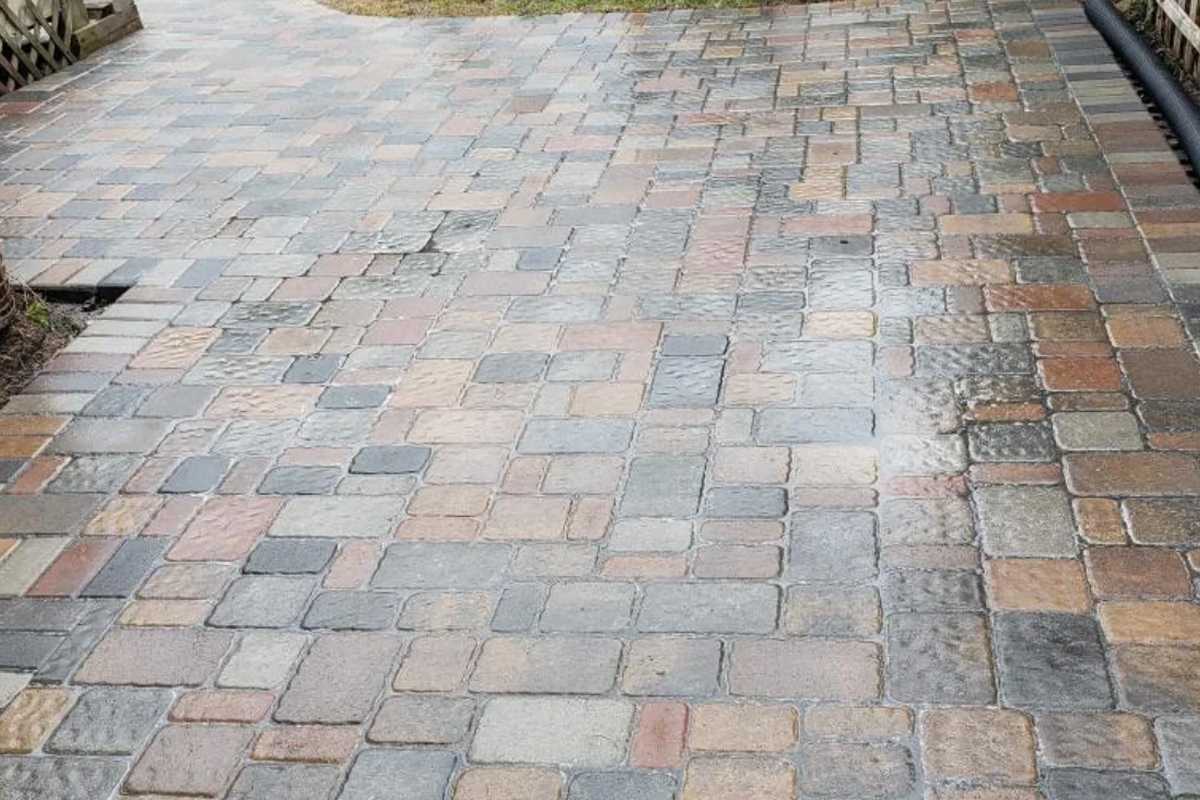
Multi-Property Homeowner Gets Reliable Twin Cities Landscaping Reliable Multi-Property Landscape Maintenance With so much to do and so little time,
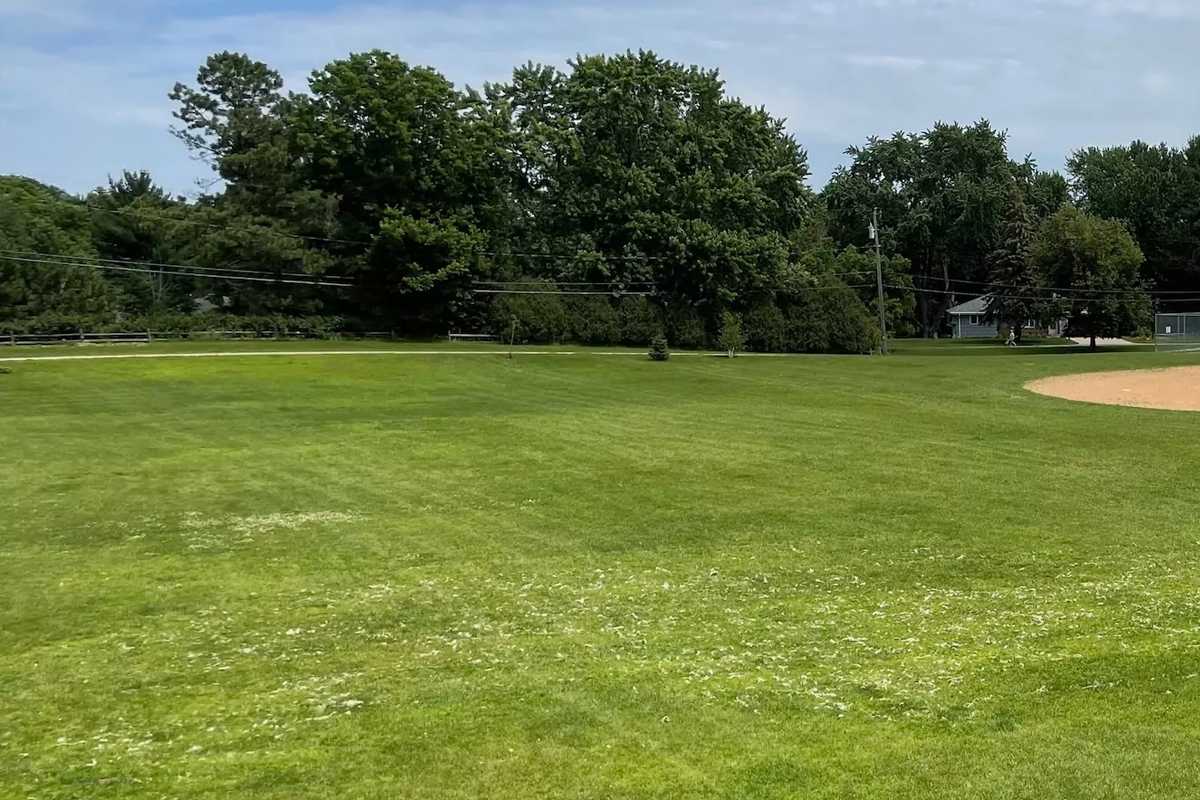
A New Organic Lawn for Hopkins School District Minnehaha Falls Landscaping Steps In When District Maintenance Supervisor Kevin Neuman received
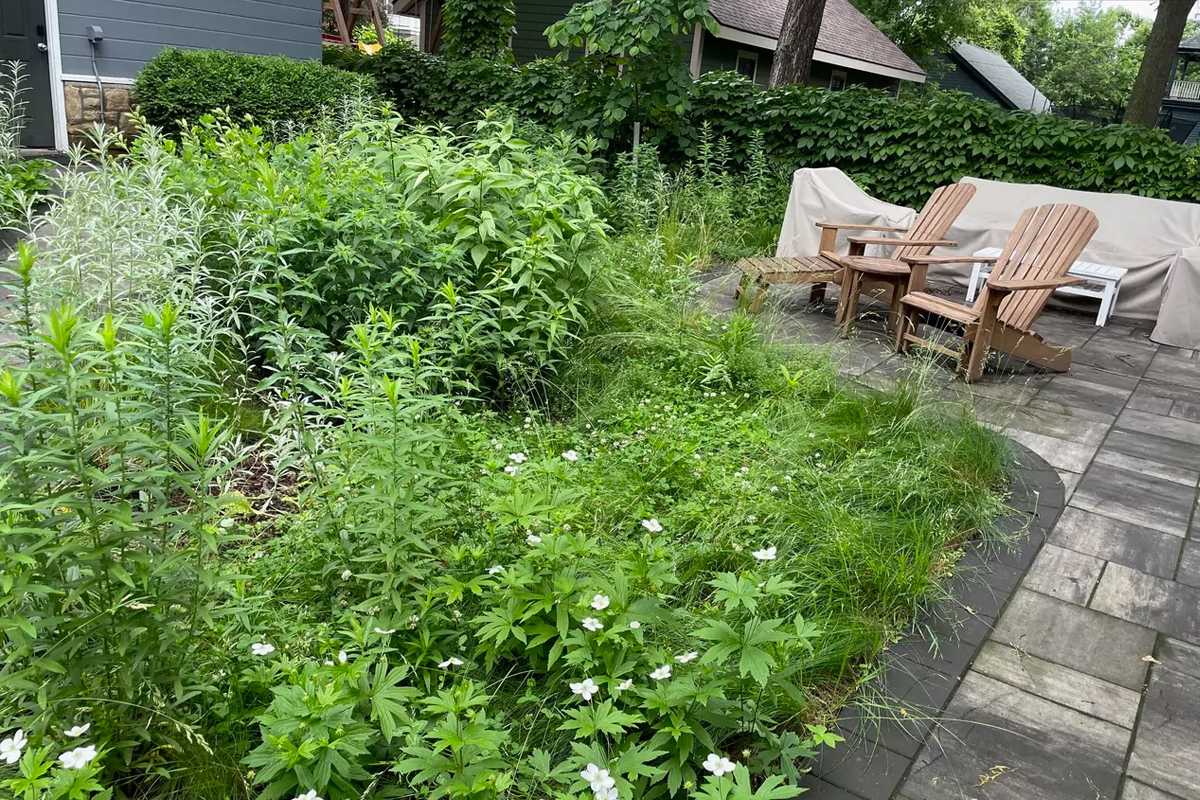
Eco-Friendly Rain Garden Success in St. Paul How a rain garden installation kept water out of a St. Paul basement.
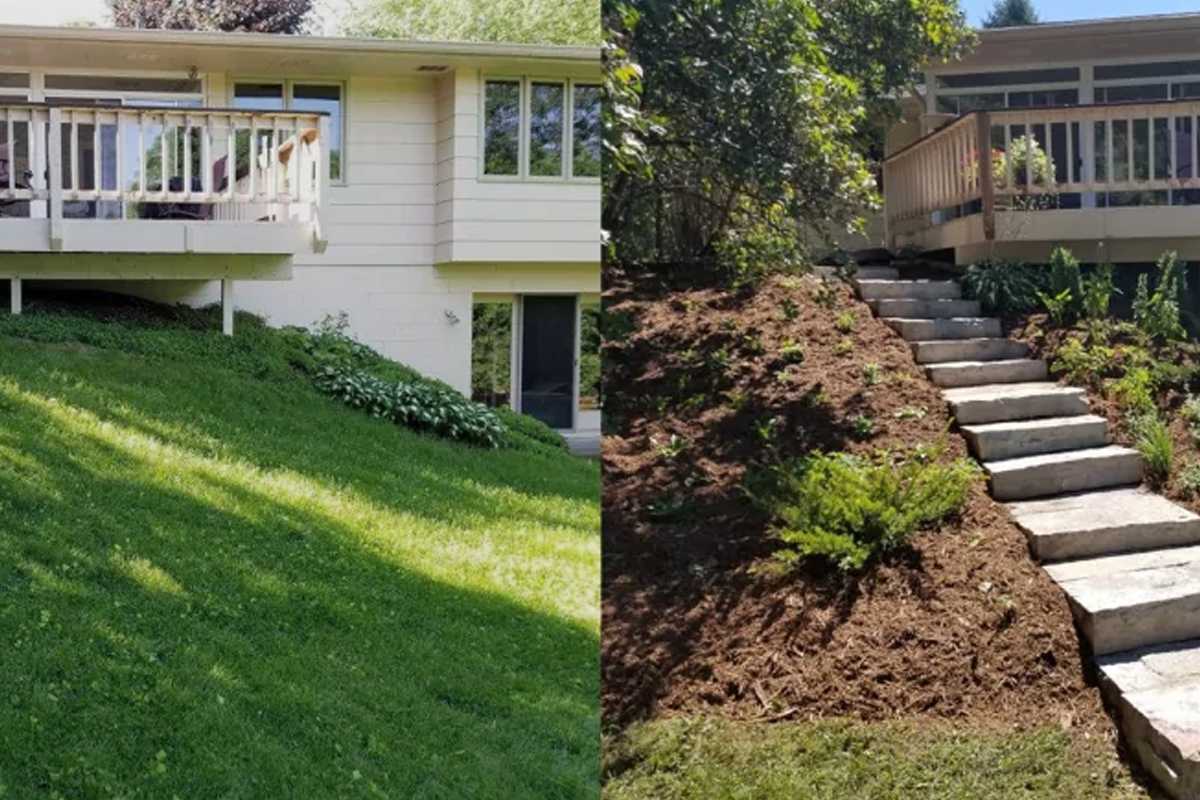
Twin Cities Couple is Over the Hill These Minnehaha Falls Landscaping clients were tired of mowing their hillside lawn every

Retiring to the Patio Stephanie Wallace and Kelly Jackson moved out of their Minneapolis home after 25-years because they wanted

As the education and advocacy branch, we work with community partners to create safe places for our pollinators, one garden, yard, business, school, church, conversation at a time. We know that together, we can build the buzz!

As the construction branch of Minnehaha Falls Landscaping, we build outdoor decks, steps, railings, pergolas, fences, and planters. When it gets colder, we step inside to remodel living spaces with creativity and craftsmanship, including cabinetry.

As the gardening branch, we work within your landscape to grow plants, flowers, shrubs and woodland gardens that are beautiful, restorative, and safe for birds, people, pets, and pollinators. We also install bee-friendly lawns and do spring and fall clean-up.
"*" indicates required fields
Call us at 612-724-5454 to see what is possible with landscape design and construction, organic gardening, and indoor remodeling.